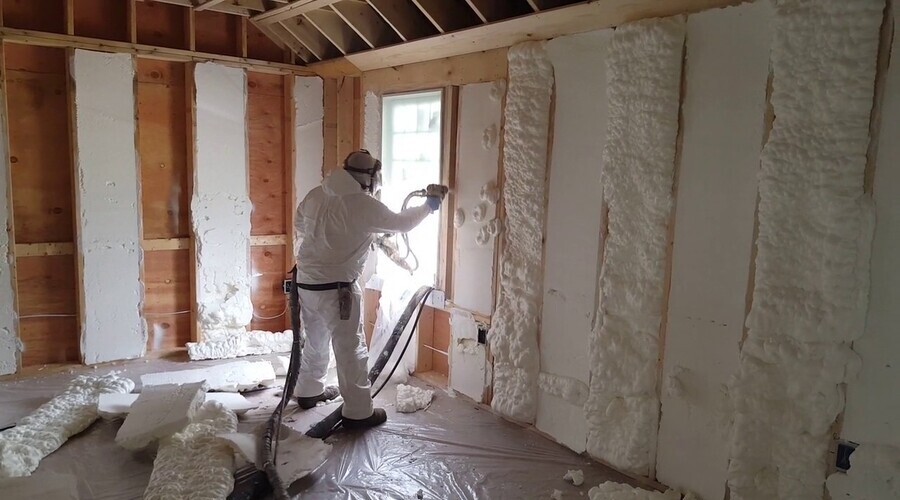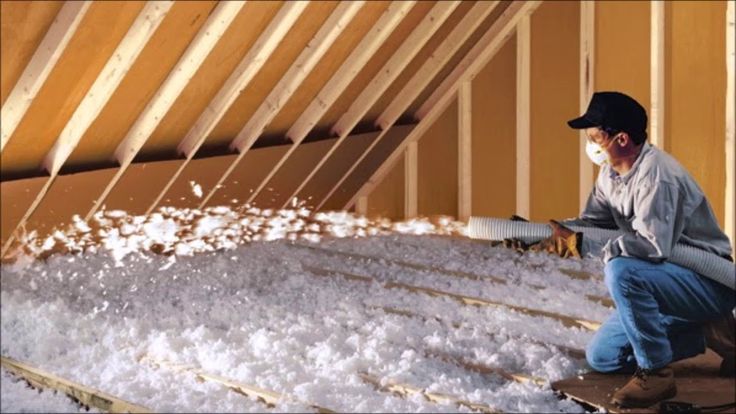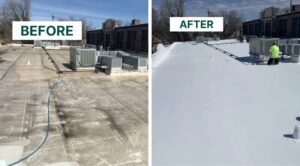
Spray foam insulation is known for its energy-saving capabilities, but it also offers powerful soundproofing benefits that make your home quieter and more peaceful. This insulation solution is particularly popular among homeowners in Williston, Florida, where maintaining a comfortable indoor environment is crucial due to the region’s warm climate and varied noise levels. Whether it’s reducing outside noise or quieting sound within the home, spray foam can be a valuable tool for managing sound and enhancing the quality of life indoors.
Why Soundproofing Matters for Your Home

Soundproofing your home goes beyond simply creating a quieter atmosphere. It can significantly impact your comfort, sleep quality, and overall well-being. This is particularly relevant in bustling areas or near busy streets, where external noise can disrupt daily routines. But soundproofing can also be beneficial within the home, helping keep noise contained in specific rooms and allowing everyone to enjoy their activities without disturbing others.
Spray foam insulation serves as an effective soundproofing measure by addressing three key sound management needs: blocking, absorbing, and dampening sound. Understanding how spray foam achieves these results will clarify why it’s become a preferred choice for soundproofing in homes across Williston and surrounding areas.
How Does Spray Foam Insulation Reduce Noise?
The Science Behind Spray Foam Soundproofing
Spray foam insulation works as an excellent soundproofing material due to its cellular structure and density. When applied to walls, floors, attics, and crawl spaces, spray foam’s unique composition creates a barrier that not only insulates against heat and cold but also reduces sound transmission. There are two main types of spray foam—open-cell and closed-cell—each with different properties that can impact sound control.
- Open-Cell Spray Foam: Known for its softer, more flexible structure, open-cell spray foam is effective at absorbing sound within a space. The open cells trap sound waves, preventing them from passing through walls or floors.
- Closed-Cell Spray Foam: This denser foam offers superior sound-blocking capabilities. It creates a rigid barrier that is excellent for reducing both airborne and impact noise, making it ideal for exterior walls and areas where sound transmission needs to be minimized.
These two types of foam can often be combined strategically for a more tailored approach to soundproofing. In Williston, Florida, and other nearby cities, homeowners are finding that spray foam insulation in key areas of the home creates a quieter, more serene indoor environment.
Key Areas to Soundproof with Spray Foam Insulation
Using spray foam insulation for soundproofing offers flexibility; it can be applied in various parts of the home to tackle specific noise concerns. Here are some of the most common areas homeowners choose to soundproof with spray foam.
1. Attic Insulation for Noise Reduction
The attic is one of the main entry points for outdoor noise, particularly if you live near busy streets or areas with frequent air traffic. Insulating the attic with open or closed-cell spray foam helps prevent sound from entering the home. This can lead to a noticeable reduction in overall noise, creating a calmer environment indoors.
2. Wall Insulation to Block External Noise
Exterior and interior walls are crucial in soundproofing. Using spray foam insulation within walls can limit sound transmission both from outside and between rooms. This is especially beneficial for families in Williston who want to minimize noise between bedrooms, living areas, or home offices.
3. Crawl Space Insulation to Dampen Vibrations
The crawl space may seem like an unusual spot to consider for soundproofing, but it plays a key role in managing sound vibrations within the home. Insulating crawl spaces with spray foam not only helps with temperature control but also prevents vibrations from being transferred through floors and walls, contributing to a quieter living space.
4. Metal Building Insulation for a Peaceful Workspace
For homeowners with metal workshops, garages, or sheds, spray foam insulation can be a game-changer. Metal buildings tend to amplify noise, making it difficult to enjoy these spaces fully. Closed-cell spray foam is highly effective for these structures, as it reduces both internal and external noise, creating a more enjoyable and productive environment.
Benefits of Soundproofing Your Home with Spray Foam
Using spray foam for soundproofing offers numerous advantages that go beyond noise reduction. Here are some benefits that Williston residents may find particularly compelling:
- Increased Comfort and Privacy: A quieter home environment fosters relaxation and offers a sense of privacy. This is especially valuable in households where different members engage in various activities that might otherwise disturb each other.
- Enhanced Sleep Quality: Many people find that reducing noise—whether from outside traffic or internal activities—improves sleep quality. Spray foam insulation can be an investment in better sleep and, by extension, better health.
- Energy Efficiency: Spray foam insulation is primarily known for its energy-saving properties. When soundproofing with spray foam, you also improve insulation, reducing heating and cooling costs in Williston’s warm climate.
- Improved Property Value: Soundproofing can add to your home’s appeal, making it more attractive to potential buyers. In areas like Williston and surrounding cities, homes with quality insulation and soundproofing are often seen as more desirable, contributing to a higher resale value.
Types of Spray Foam for Soundproofing: Open-Cell vs. Closed-Cell
Understanding the differences between open-cell and closed-cell spray foam can help homeowners choose the right product for their soundproofing needs.
Open-Cell Spray Foam: Best for Absorbing Sound
Open-cell spray foam is ideal for interior walls and ceilings due to its soft and porous structure. It is particularly effective for absorbing airborne noise within rooms, making it perfect for music rooms, home offices, or family rooms.
- Pros: More affordable, flexible, excellent at sound absorption.
- Cons: Less durable, not as effective at blocking moisture.
Closed-Cell Spray Foam: Superior Sound Blocking
For high-density areas where soundproofing needs to be robust—such as exterior walls, floors, or ceilings—closed-cell spray foam is the better choice. Its dense structure creates a more rigid barrier, which not only blocks sound but also provides structural reinforcement.
- Pros: Superior sound-blocking, adds structural support, effective moisture barrier.
- Cons: Higher cost, rigid structure.
Why Spray Foam is Ideal for Homes in Williston, Florida
Williston residents benefit from spray foam insulation for several reasons, from energy efficiency to improved indoor comfort. Soundproofing is another valuable advantage that many homeowners may overlook. The climate in Florida, particularly in areas like Williston, often requires insulation that can handle heat, humidity, and noise.
By using spray foam, residents can address noise concerns while also improving their home’s energy efficiency and comfort. This makes spray foam insulation a versatile solution for both new construction and renovation projects.
FAQ: Common Questions About Soundproofing with Spray Foam
How effective is spray foam insulation at reducing noise?
Spray foam insulation can significantly reduce noise by blocking sound transmission through walls, floors, and ceilings. Open-cell foam absorbs sound, while closed-cell foam blocks it, making spray foam an effective solution for creating a quieter home environment.
Where should I apply spray foam for the best soundproofing results?
The best areas to apply spray foam for soundproofing include attics, walls, crawl spaces, and metal buildings. Each of these areas plays a role in noise management, depending on the source of the sound and the room’s function.
Is spray foam soundproofing worth the investment?
Absolutely. In addition to reducing noise, spray foam insulation also boosts energy efficiency, improves air quality, and enhances your home’s resale value. For homeowners in Williston, this dual benefit can be particularly valuable in enhancing quality of life and saving on utility costs.
Which type of spray foam should I choose for soundproofing?
Open-cell spray foam is typically best for interior sound absorption, while closed-cell spray foam works well for sound blocking and structural support. Your choice will depend on the area you’re insulating and your specific soundproofing needs.
Conclusion: Enjoy a Quieter Home with R-Factor Sprayfoam Solutions
Soundproofing with spray foam insulation offers Williston residents a highly effective way to control noise and create a more peaceful living space. From attics to crawl spaces, spray foam can be tailored to your home’s unique layout and soundproofing needs. When you’re ready to transform your home into a quieter, more comfortable environment, contact R-Factor Sprayfoam Solutions at (352) 900-3341. Serving Williston, Florida, and neighboring areas like Gainesville, Ocala, and Crystal River, their team has the experience and tools to help you enjoy a peaceful home year-round.





